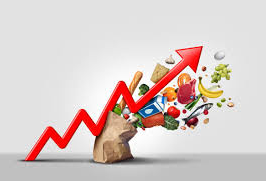2022 saw a significant increase in inflation rates compared to previous years, highlighting ongoing economic pressures.
SINGAPORE: Singapore’s core inflation in December remained steady at 5.1% for the third consecutive month, according to official data released on January 25. This figure slightly surpasses the 5% forecast provided by a Reuters poll of economists.
The increase in inflation was driven by smaller price hikes in retail goods, electricity, and gas, which were offset by rising costs in food and services, as reported by the Monetary Authority of Singapore (MAS) and the Ministry of Trade and Industry (MTI). Core inflation excludes accommodation and private transport costs.
The overall consumer price index, or headline inflation, was recorded at 6.5% in December, a decrease from 6.7% in November, primarily due to slower private transportation inflation. For the entire year of 2022, core inflation averaged 4.1%, significantly higher than the 0.9% recorded in 2021. Overall inflation stood at 6.1%, compared to 2.3% the previous year, aligning with government estimates.
Food and Services Inflation Rises
Core inflation experienced a steady climb throughout 2022, peaking at nearly a 14-year high of 5.3% in September before stabilizing at 5.1% for the remainder of the year. In December, food inflation increased to 7.5%, up from 7.3% the prior month, primarily due to higher non-cooked food prices. Service inflation also rose to 3.7% from 3.6% in November, largely driven by increased holiday expenses.
Electricity and gas inflation decreased to 16.5% in December, down from 16.7% in November, while inflation for retail and other goods fell to 2.8% from 3.3%. This decline is attributed to a decrease in prices for telecommunication equipment, personal effects, and smaller hikes in clothing and household durables. Private transport inflation dropped to 15.5% from 17.2% in November, as car and petrol prices increased at a slower rate. Accommodation inflation also slightly decreased from 4.8% to 4.7%, reflecting a slower rise in housing rents.
Outlook
Looking ahead to 2023, considering various factors including the GST increase, headline inflation is projected to average between 5.5% and 6.5%, while core inflation is expected to range from 3.5% to 4.5%. Excluding the temporary effects of the GST hike, headline inflation is anticipated to fall between 4.5% and 5.5%, with core inflation figures expected to lie between 2.5% and 3.5%.
Authorities have noted potential upside risks to the inflation outlook, including fresh shocks to global commodity prices and persistent sources of inflation, both external and domestic. Despite a decline in global supply chain frictions and a decrease in energy and food commodity prices from their peaks earlier in 2022, costs remain elevated. Tight labour markets in major advanced economies continue to exert wage pressures.
“Overall, as accumulated costs pass through global value chains, Singapore’s imported inflation is expected to remain firm for some time,” stated MAS and MTI. Although electricity tariffs have decreased from their peak in Q3 2022, utility costs are likely to stay high, leading businesses to continue passing on accumulated costs to consumers amid strong demand. Additionally, rising car and accommodation costs are expected to persist in the upcoming quarters due to limited Certificate of Entitlement quotas and high demand for rental housing.








